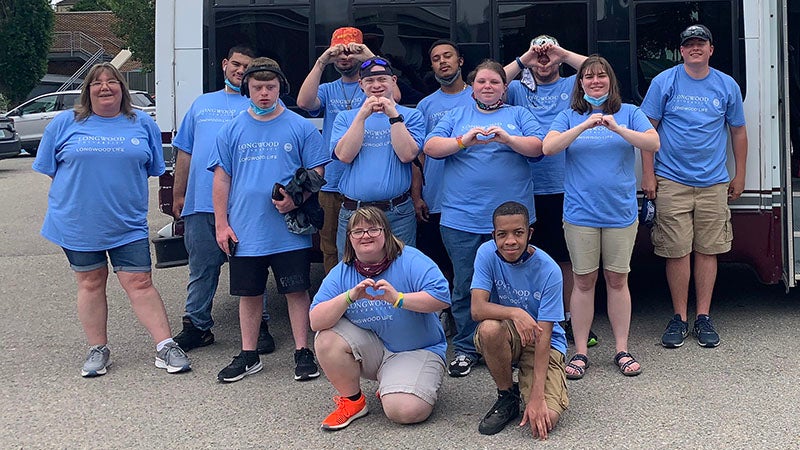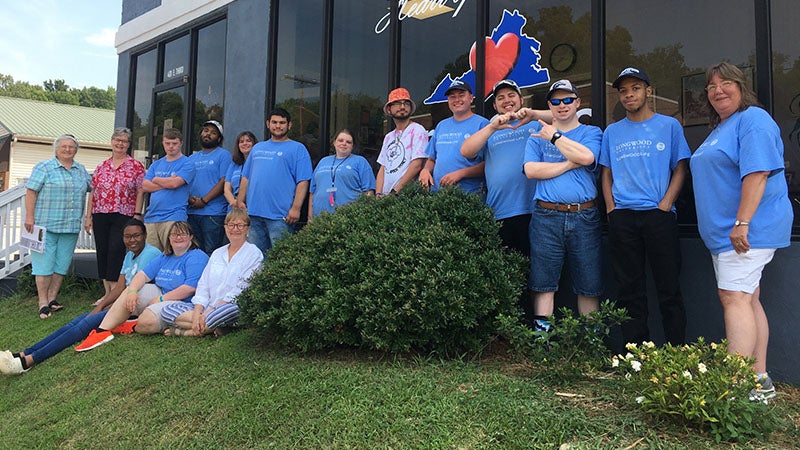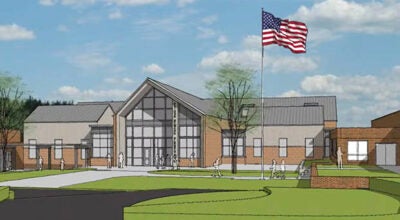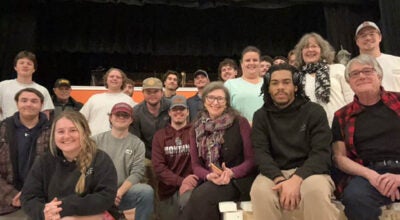LIFE program offers growth for all
Published 4:34 pm Thursday, September 2, 2021
|
Getting your Trinity Audio player ready...
|
Longwood LIFE is a program designed to help prepare people with high functioning mental disabilities ages 18-25 for independent living.
Dr. Karen Feathers, assistant professor in Special Education and the professional studies autism certificate coordinator, heads up the program. Her favorite part? Parking lot duty, when the Longwood LIFE students come in and later leave at the end of the day.
“When you do parking lot duty at 7:30 in the morning, you develop relationships,” Feathers said. “To see the parents gather together at the end of the day, and to be able to celebrate their students’ successes, and for them to have a realistic view of our struggles.”
The Longwood LIFE program is open to mentally disabled students who want the opportunity to work out in the world and become more independent. Classes are held on Wednesdays and Fridays, 9 a.m.-5 p.m. Currently there are 19 students split into two groups in the program who come from six regions and eight counties.
“Most of our students can read, and they can do math, but they’re not functioning at a sixth grade level,” Feathers said. “They need transition training. We look at the whole student and what the incoming freshmen want and need.”
The program helps a population that tends to be overlooked.
“Students with intellectual disabilities and other developmental disabilities are underrepresented and underserved,” Feathers said, describing the need for Longwood LIFE. She said that sometimes rural areas in particular do not have the means for programs to serve these students.
Longwood LIFE is moving into its third year with its first ever graduating class. The program was meant to last two years, but COVID slowed everything down. The students who graduated last year are doing internships this year, when normally they’d be done and out in the world.
Though they’re part of a special program, “Our students are considered Lancers,” Feathers said.
The program partners with community businesses and resources to give students real-life experiences with employment and socializing. Students have shadowed employees at places like Lowe’s and Food Lion, Feathers said, as well as eaten out at local restaurants such as Pino’s, to get a feel for ordinary life transactions.
“One thing that has surprised me,” Feathers said, “we have students who are not readers, but they are great performers.” Those who previously didn’t know basic skills learned how to read receipts, leave tips and figure out taxes — actions that most of us learn along the way.
Parents, caregivers and guardians benefit from the program as well; they see their charges developing as people and also often form new friendships and social groups with other parents, which provides them with extra emotional support.
“One parent shared that she cried and said that she can see how much her son has grown,” Feather said. “People in the dining hall will pull me aside and say they have grown so much. People in my department who have noticed say that they are so much more outgoing and independent. Employers who are managing our students have said this has been one of the most meaningful things they’ve been a part of at Longwood, and they had not been around people with mental disabilities before.”
The program is also mutually beneficial for grad students who plan to work in areas related to the program, as it gives them hands-on experience and a chance to help Longwood LIFE students grow, as well as any other students performing community service, like fraternities and sororities. Approval has also come from more unexpected places, Feathers said.
“I have had both fine arts professors and employers who are job coaching our students say how great this is,” Feather said. “This has been one of the most meaningful things they’ve been a part of. And some of these folks were a little nervous about working with the students. They’re not special educators. They had not been around people with disabilities a lot. They were a little nervous about it.”
Despite the fact that such work was new territory for some, they treasured the experience, she said.
“One person was an employee at the fitness center, and he’s moved to security, and he’s asking to have our students work in security with him at his new position,” Feathers said.
Classes are especially suited for students who want to fully blossom. Feathers said she’s heard students say things like “I love Longwood Life,” and “I’m more independent.”
“We look at things like social skills, functional, academics, vocational training, daily living skills,” Feather said. “And even things like lifetime activities that focus on health and wellness and exercise, appreciation for fine arts, developing healthy relationships. There’s a class called ‘All About Me,’ where students are focusing on getting to know themselves better. They’re working on their self determination skills, citizenship, community service and volunteerism.”
Ultimately, the students will not merely learn to live on their own, but to give back and know they are contributing members of society.
“Now, the goal is to go back to their home communities and to see themselves as functioning adults, more independently functioning and also looking for ways that they can make contributions to their community.”
The growth is seen by those around them, but it’s first felt by the students themselves.
“One says, ‘Now I know what I want to do with my life,’” Feathers said.







